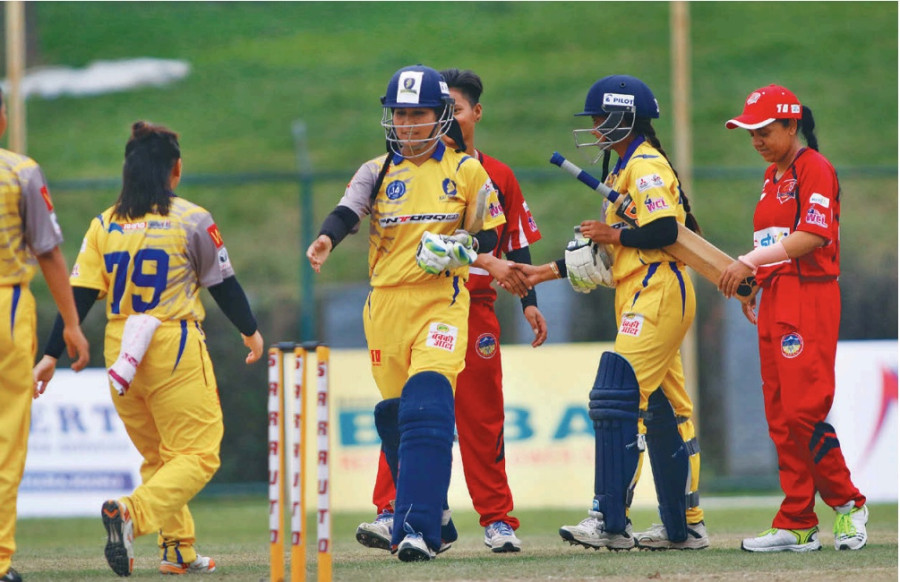Editorial
Equal pay for equal play
We must recognise the efforts of women athletes, who shoulder more responsibilities than men, and stop treating them unfairly.
Women athletes have been pushing the boundaries of sports and challenging gender stereotypes for decades. In the process, they’ve not only won accolades for themselves and brought glory to the nation, but also become household names and role models. In December last year, when the 13th South Asian Games saw a rush of gold medals and records set on home turf, women athletes in the national squad proved that they were no less than their male counterparts. In fact, they outshone their male colleagues in various disciplines, and in doing so, created history.
On Tuesday, the Cricket Association of Nepal announced central contracts for Nepali cricketers, both men and women. This is a huge development for the sport as cricketers, especially women, will now be employed and receive monthly salaries. But there is a huge disparity in pay with men raking in three times more than women cricketers. While ‘A’, ‘B’ and ‘C’ grade men cricketers would get monthly salaries of Rs50,000, Rs40,000 and Rs30,000 respectively, women cricketers would only get Rs15,000, Rs12,000 and Rs10,000. This pay gap is unacceptable and reeks of foul play, and must be immediately corrected.
Worldwide, sports have long been hailed as one of the most powerful vehicles to change the world. The International Olympic Committee, which keeps gender equality as its top priority, states that 'sport is one of the most powerful platforms for promoting gender equality and empowering women and girls'. Nepal must learn from international practices to reduce the gender pay gap and move forward on this path of progress to ensure parity in pay. We need to foster an environment where athletes, especially women, can focus all their energies to compete and win, instead of worrying about their future and glaring differences in prize money and salaries.
Whether the nominal remuneration is enough to even cover the dietary and equipment needs of the athletes is an issue in itself, but the country’s cricketing governing body must first review the massive salary gap and ensure equal pay for equal play. It should step up and set an example for other sports associations in the country to follow. This institutional victory which benefits our athletes is also needed to pave the way for development in sports, which remains largely neglected.
At the end of the day, like the eight-time national table tennis champion Nabita Shrestha said in an interview to the Post last year, sports associations and tournament organisers must play fair when it comes to remuneration and cash prizes for men and women because when athletes win tournaments, 'medals are added in the name of the country'. Women athletes deserve this change, and should not be treated as second class citizens. Like men, women put in equal commitment and are equally valuable. We must recognise the efforts of women athletes, who shoulder more responsibilities than men, and stop this unfair treatment.
The government and sport governing bodies must stand for fairness, a virtue that is at the heart of any sport. The National Sports Council, which is responsible for the development of sports in the country, must put an end to this systematic discrimination and introduce policies to establish equal pay and prize money in sports. Nepal’s corporate sector which sponsors various domestic sporting events must also uphold this primary principle. Together with more substantive media coverage of women’s sporting events, the country is bound to witness ripple effects in the development of sports and empowerment of women as more young girls look forward to pursuing a career in sports. Many social constructs and gender stereotypes can be addressed easily when there is more participation of women in sports, paving the way for larger progress in our society.
Men and women athletes should stand on the same pedestal. There should be no two thoughts about it.




 9.7°C Kathmandu
9.7°C Kathmandu














